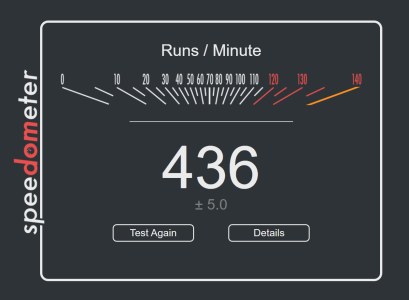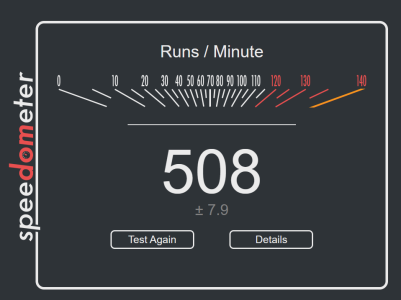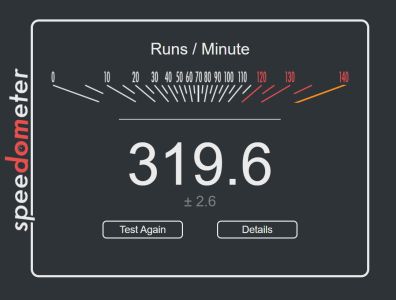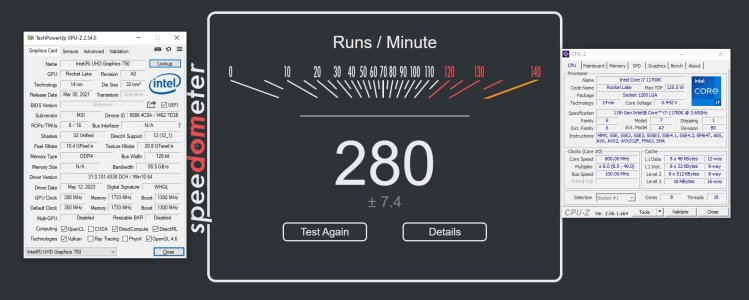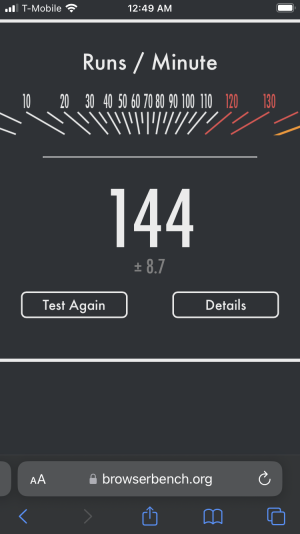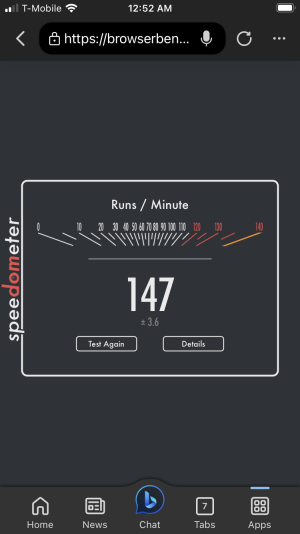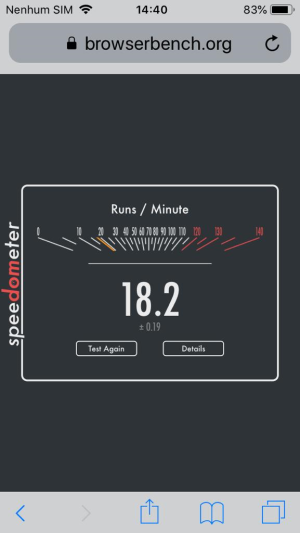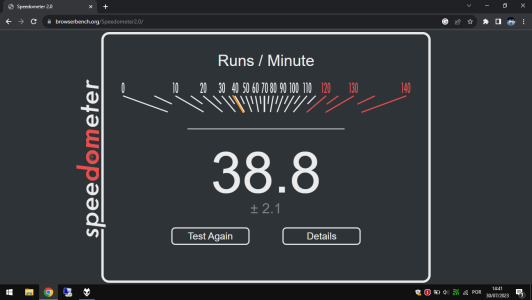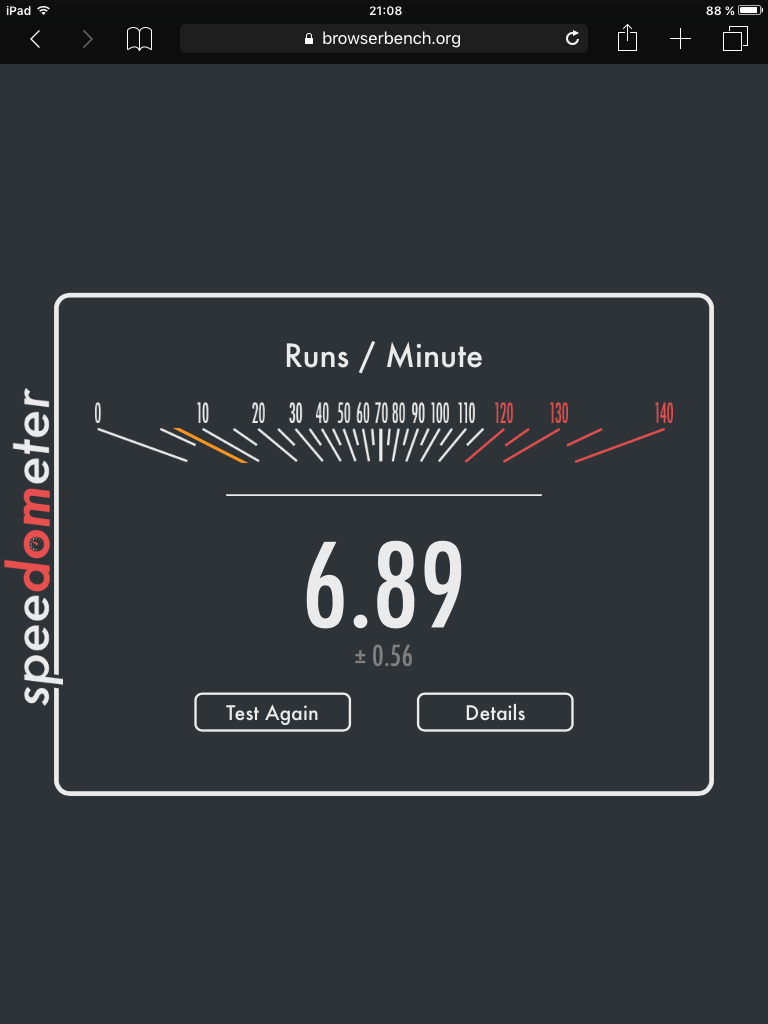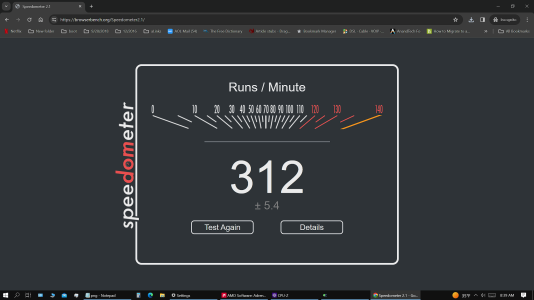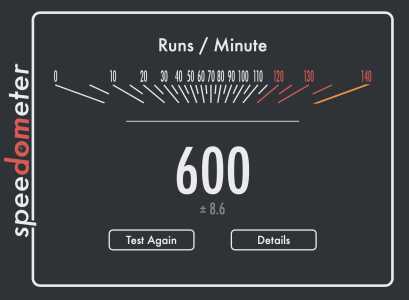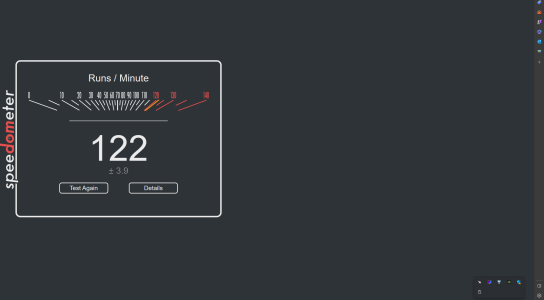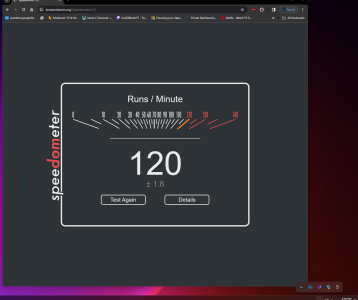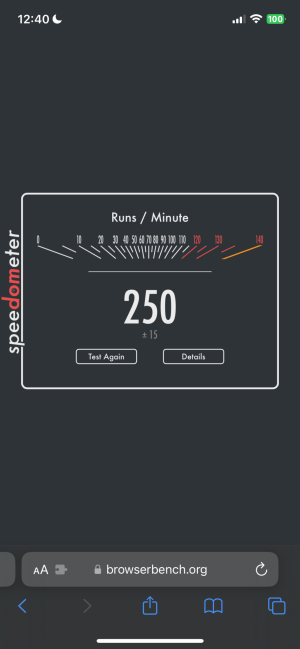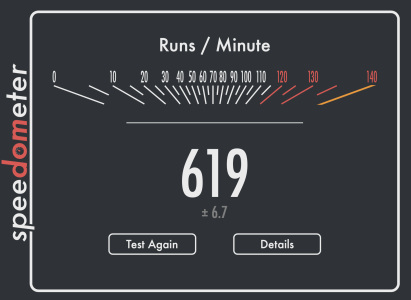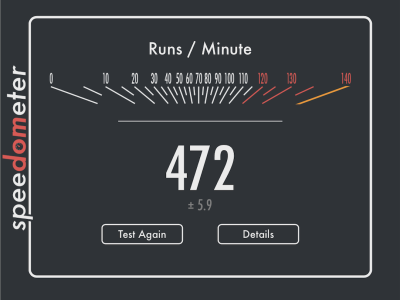- Oct 2, 2011
- 3,477
- 234
- 106
This benchmark simulates user actions for adding, completing, and removing to-do items using multiple examples in TodoMVC. Each example in TodoMVC implements the same todo application using DOM APIs in different ways. Some call DOM APIs directly from ECMAScript 5 (ES5), ECMASCript 2015 (ES6), ES6 transpiled to ES5, and Elm transpiled to ES5. Others use one of eleven popular JavaScript frameworks: React, React with Redux, Ember.js, Backbone.js, AngularJS, (new) Angular, Vue.js, jQuery, Preact, Inferno, and Flight. Many of these frameworks are used on the most popular websites in the world, such as Facebook and Twitter. The performance of these types of operations depends on the speed of the DOM APIs, the JavaScript engine, CSS style resolution, layout, and other technologies.
Core M-5Y10c @ 52.02
Images aren't necessary, but please state your cpu speed. The web browser of your choice. Mine is Edge 83. Thank you.
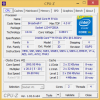

Last edited:


